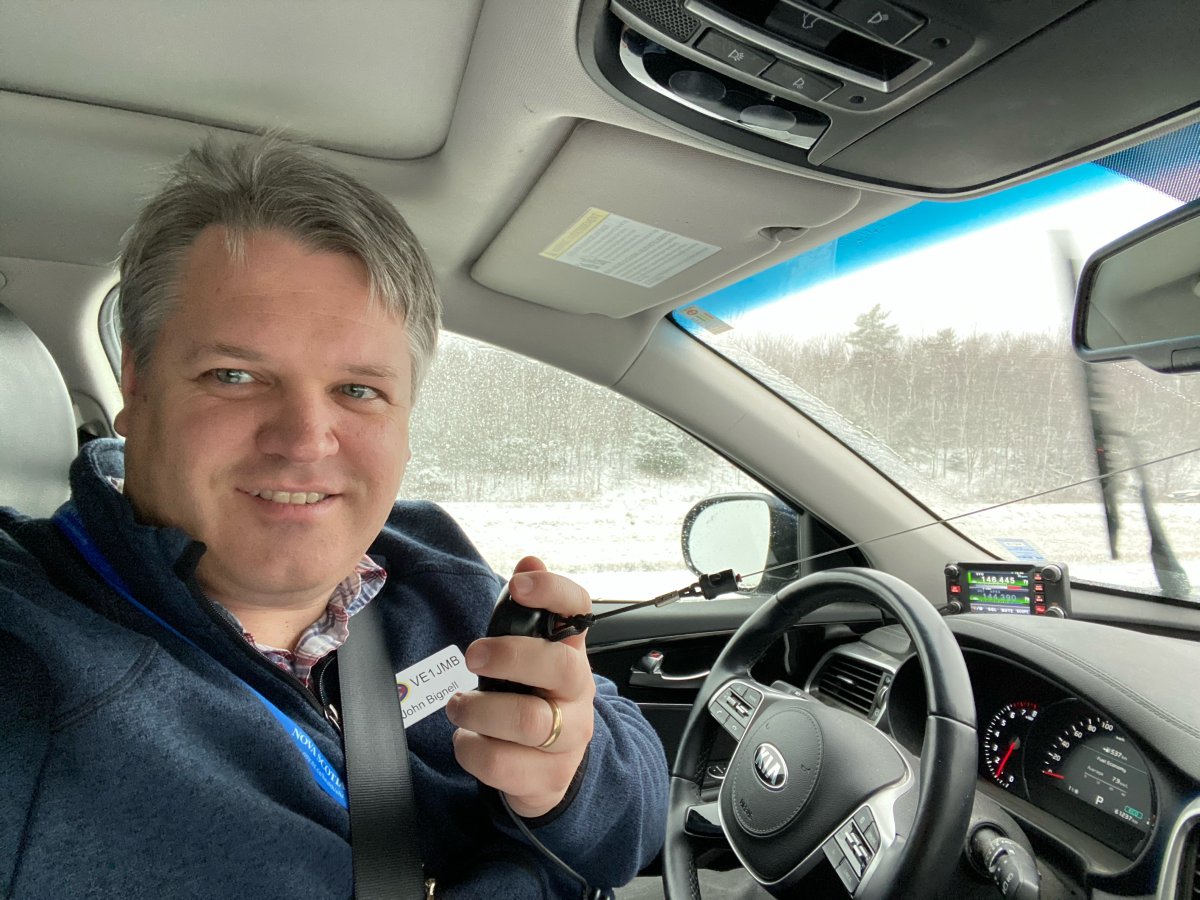Dozens of amateur radio operators are participating in a contest on Saturday to challenge Halifax’s connectivity.

As the coronavirus pandemic limited club activities, the Halifax Amateur Radio Club is hosting Get On The Air to challenge new and veteran radio operators around the city.
Amateur radio, or ham radio, communicates with other devices through FM frequencies, without the use of landline or internet services.
John Bignell, an EHS Advance Care Paramedic and licensed ham radio operator, says this is a fun winter event that also serves as practice for emergency situations.
“During normal days, normal conditions, for us as radio operators one of the components we focus on is emergency communication,” he said.
Saturday, a heavy snowfall hit most of Nova Scotia; such weather can cause disturbances for radio operators.
“The contest today is having the ability to connect, we can reach other hams, set up a communication network and be able to test our city.”
Locations that are being tested include Citadel Hill, Pier 21, and many away from the city core. Some contestants will be on-the-go while others will tune in from home.
“I have a hand-held radio, set up as 2 metres, and then I have my vehicle radio and we set up a location with radios there, and see how far we can get out, see if we can connect to people within the province, within the area.”

The goal of this contest is to build a stronger network, Bignell says.
“If I’m in Dartmouth, can I reach a location in Sackville, can I reach someone in Hammonds Plains? The ability to use certain frequency and be able to use it effectively, and (figure out) does it work, does it not work.”

Get daily National news
Bignell says it’s essential to be able to understand interference when travelling from one place to another. “Here in Halifax, there’s buildings, there’s other radios, there’s other factors that come into play.”
He says the importance of connectivity for ham radio operators was seen over and over again in recent events.
Bignell remembers the 2017 Eastern Canada connection outage, where on Aug. 4, Bell Aliant landline and cell services were cut off after damage to fibre lines.
Anyone from citizens, to retailers and — most importantly emergency responders — were cut off or had significant disruption in connectivity for several hours.
“This is that last resource — when everything else fails, ham radio still works.”
Bignell says having amateur operators is important for the Red Cross, ground search and rescue teams, and the Emergency Management Office among others.
“This is the last resort, the last card they can play,” he said.
Ham radio, he says, is all about communication, “the ability to go from one point and transmit something to the next point… but how you do it, how well you do it, how far you can do it, really makes it interesting.”
Bignell says the ability to transmit information is so accessible now that it’s taken for granted.
“Any disaster or storm that happens in Halifax, we have the ability to still transport pictures, the ability to transport weather reports… without using cell phones, internet and traditional means.”

The Radio Amateurs of Canada, a non-profit association that offers qualification courses to those who want to become licensed ham radio operators, reported there are more ham radio operators in Canada today than ever before.
“There’s more people registering, there’s more people becoming ham radio operators,” Bignell says.
He says between 20 and 50 people are expected to participate in Saturday’s contest, which began at noon, at the fire of the Citadel Hill canon.
“I think the storm might keep people at home more… but I anticipate about 20 per cent (of contestants) will be roaming around the city.”
Each contestant on-the-go will go to a designated location and try to make contact with somebody at home, radio to radio.
“Whoever can hear me will call back. If I make that contact, I’ll record on my log that I contacted Joe in Dartmouth, I’m John in Halifax, and that’s one point.”
Every time a connection is made, a point is gained. The challenge is getting as far out of the city core as you can and still make a connection.
“There are people that should be able to hit New Brunswick, maybe even Maine, Cape Breton,” Bignell said.
The contest is meant to encourage new ham radio operators who have just completed the course to get out and practice. The contest will go on for about four hours, Bignell said.
“It’s a fun event. COVID certainly makes things difficult and we’re trying to find unique ways to get our club back and engaged.”









Comments